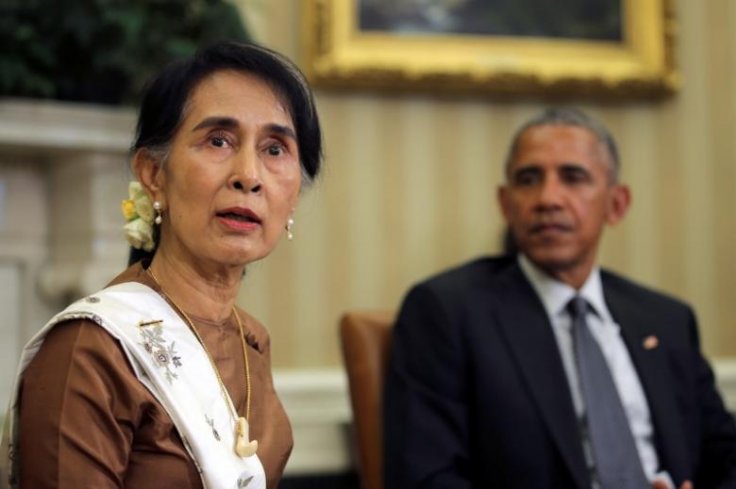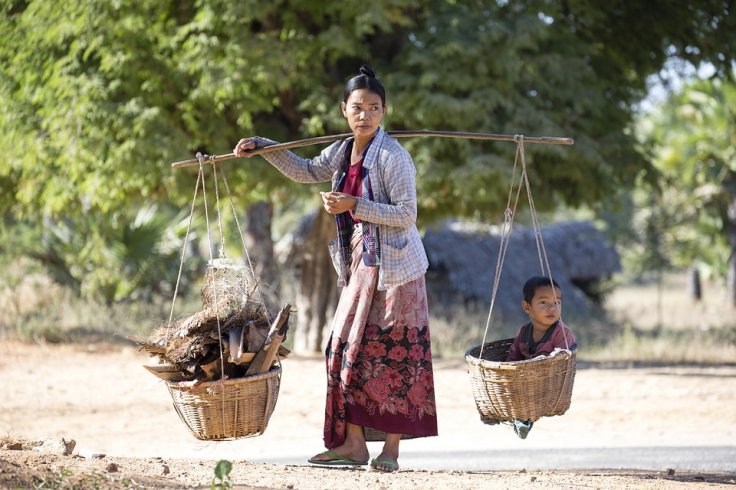China and North Korea have been criticized for media censorship and lack of transparency over the years, though it hardly bothered any of these countries. But there is another nation where internet shutdown left millions of people unaware of the global Coronavirus pandemic.
The long-running internet shutdown in Myanmar (Burma) left millions of citizens in dark for a year and so far 286 COVID-19 cases have been reported as of Saturday, June 20. Many of those Burmese people in regions where the internet is just a word, don't even know what is going on in the world currently.
Along with the internet shutdown, the restrictions on aid and relief agencies to visit villages in the affected regions left the villagers in Rakhine and Chin state unaware of the novel Coronavirus outbreak, revealed humanitarian workers to the Human Rights Watch, which is a non-governmental organization.
Myanmar Government Under the Nobel Laureate

The current government headed by Aung San Suu Kyi, who received the Nobel Prize in 1991 for her non-violent struggle for democracy and human rights, has curtailed peple's freedom and ordered telecom companies to block mobile internet coverage in nine villages of two states on June 20, 2019, after the clashes between the Myanmar military and troops from the ethnic Arakan Army escalated.
The government did not give the companies any specific reason for blocking internet access. Despite the government's claim that the shutdown was required to ensure national security, hundreds of Burmese people were reportedly killed and more than 100,000 had been displaced during the fighting, reported news agencies.
In a recent statement Linda Lakhdhir, Asia's legal adviser at Human Rights Watch, said that for a year now, the internet shutdown has severely impacted the rights of over a million civilians in Rakhine and Chin States. "With the armed conflict between the Myanmar military and Arakan Army in Rakhine State amid a pandemic, it's critical for civilians to get the information needed to stay safe," she said.
Coronavirus in Myanmar
The Myanmar government temporarily lifted the restrictions on internet usage in five townships from September 2019 to February 2020, just the time when the Coronavirus outbreak was beginning to hit the entire world. The authorities lifted the restrictions in the Maungdaw village in May but extended the internet blocking in other eight villages until August 1 citing security issues. Soe Thein, the permanent secretary at the Ministry of Transportation and Communications, said last week that the internet service will be restored if there are no more threats to the public or violations of the telecom law.
But as per the human rights activists, the internet shutdown is actually putting people's lives at risk. Matthew Bugher, ARTICLE 19's Head of Asia Program, said the government continues to justify its actions citing national security, but effectively it is the internet shutdown that has affected the Burmese lives. He also added that "the shutdown calls into question the Myanmar government's commitment to preventing the spread of the virus, particularly in ethnic minority areas."
In response to the criticism, Myanmar government said the shutdown should not affect the daily lives of civilians as all the residents can still access information via mobile SMS services. The authorities defended their move claiming that people can access the public address systems which broadcast government information.
No Idea About How Big the Health Crisis Is

The vast majority of people in the country rely on mobile internet to access information. At the time when people need to be aware of the health crisis, do's and don'ts during the pandemic, detachment from the world news and warnings by experts may cause the infection to spread rapidly, argued health and aid agency staff.
Shut down of the internet has obstructed the distribution of aid to conflict-affected communities and made it difficult for aid agencies to communicate with their field teams and ensure their safety.
The news organizations in Myanmar have also criticized the internet blackout for hampering their efforts to publish timely updates on what is happening in their area as well as news about the local conflicts. But if the internet comes back, they won't be able to access all the sites, as the government deliberately blocked access to several websites. The authorities argued that 92 of these blocked sites, which are mostly the independent and ethnic news organizations, provide "fake news."
UN Human Rights Office for South-East Asia urged the Myanmar government to lift all internet restrictions on the villages in Rakhine and Chin. James Rodehaver, a senior human rights official said, "Vulnerable communities are being deprived of potentially life-saving public health information during an unprecedented global pandemic and intensifying violence. It is critical to restoring online access now."








